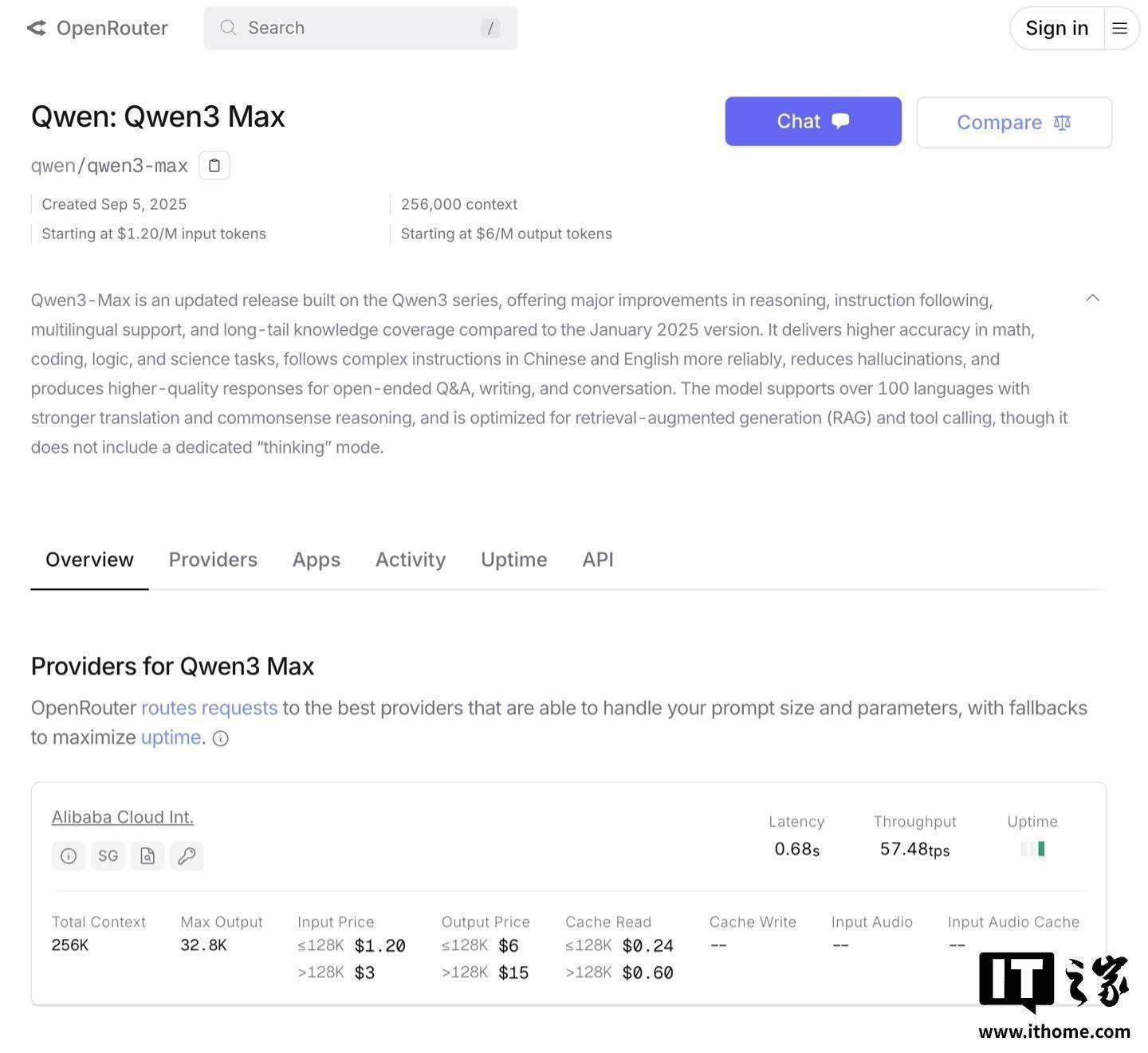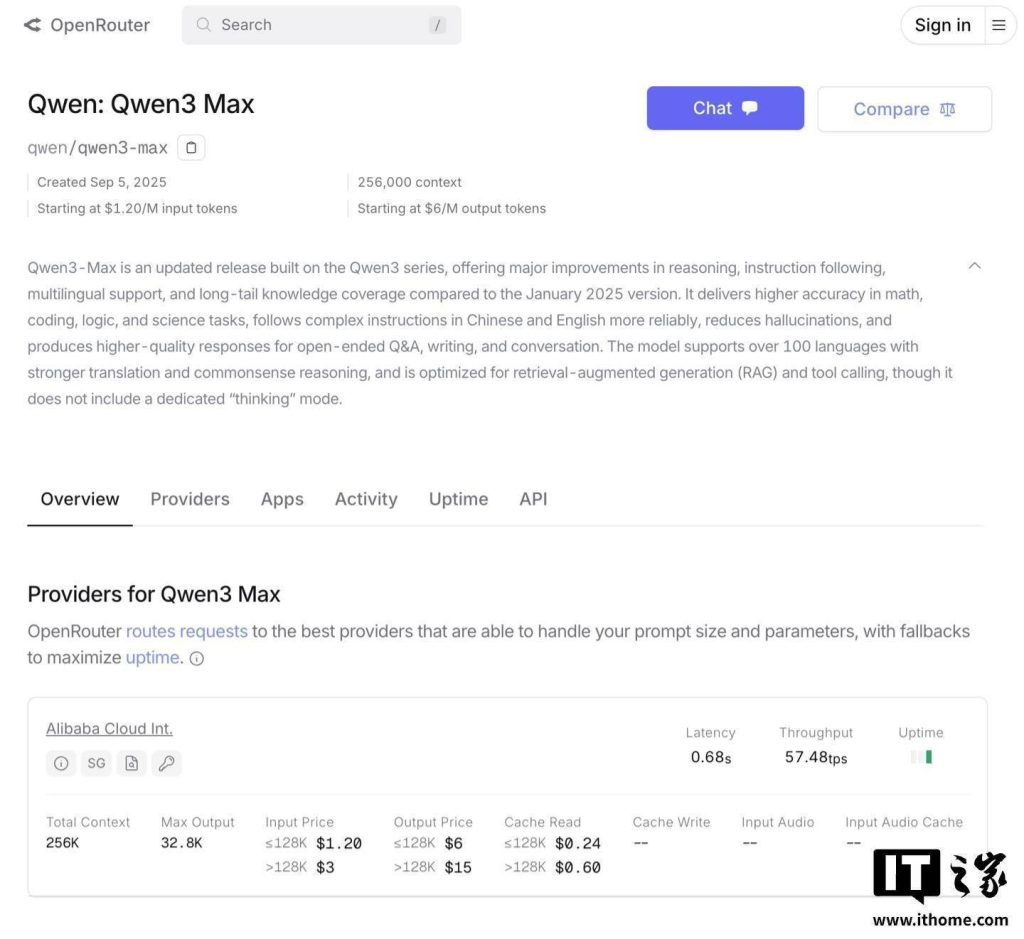The Ali Tongyi Qwen team announced today the launch of the Qwen-3-Max-Preview language model, which is regarded as the most powerful iteration in the Tongyi Qwen series. It is now available for use on the official platform and OpenRouter platform. This upgrade not only showcases breakthroughs in the technical capabilities of domestically developed large language models but also marks a key step forward in multilingual support and commercial applications.

In terms of technical performance, Qwen-3-Max has achieved significant improvements in core metrics compared to previous versions. The model’s accuracy has greatly increased in tasks such as mathematical calculations, code generation, logical reasoning, and scientific problem-solving, especially when handling mixed Chinese and English instructions, with reliability of responses improving by over 40%. The development team has effectively reduced the probability of generating erroneous content through algorithm optimization, demonstrating more stable output quality in open-ended Q&A, creative writing, and multi-turn dialogue scenarios. The technical white paper indicates that innovations in model architecture focus on optimizing attention mechanisms and knowledge distillation techniques, significantly enhancing capabilities in long text processing and understanding specialized knowledge.
The multilingual support capability has become a core highlight of this upgrade. The new model remarkably supports over 100 languages, achieving industry-leading standards in cross-language translation performance and common-sense reasoning. The team has made specific optimizations for retrieval-augmented generation (RAG) and tool invocation scenarios, enabling the model to have higher adaptability when accessing knowledge bases and integrating third-party tools. However, this version has not yet integrated deep thinking functionality, and the development team has stated that future versions will gradually improve this capability.
On the commercial front, the pricing scheme announced by the OpenRouter platform has attracted attention. The cost for input services is set at $1.20 per million tokens (approximately 8.6 RMB), while output services are charged at $6 per million tokens (approximately 42.8 RMB). This pricing system maintains technological advancement while providing developers with competitive market access costs. Industry analysts point out that this pricing strategy will help promote the model’s application in more scenarios.
Currently, users can experience the new model through the Qwen Chat official channels and the OpenRouter API interface. Its application scenarios cover various fields such as intelligent customer service, educational tutoring, and scientific research analysis. For instance, in intelligent customer service scenarios, the model can understand user intent more accurately and generate high-quality responses; in the educational tutoring field, its multilingual support capabilities can meet cross-border learning needs; in scientific research analysis, its strong logical reasoning and specialized knowledge processing capabilities can assist in the study of complex problems. It is expected that as the model is widely applied, work efficiency in related fields will see significant improvements.返回搜狐,查看更多
平台声明:该文观点仅代表作者本人,搜狐号系信息发布平台,搜狐仅提供信息存储空间服务。

